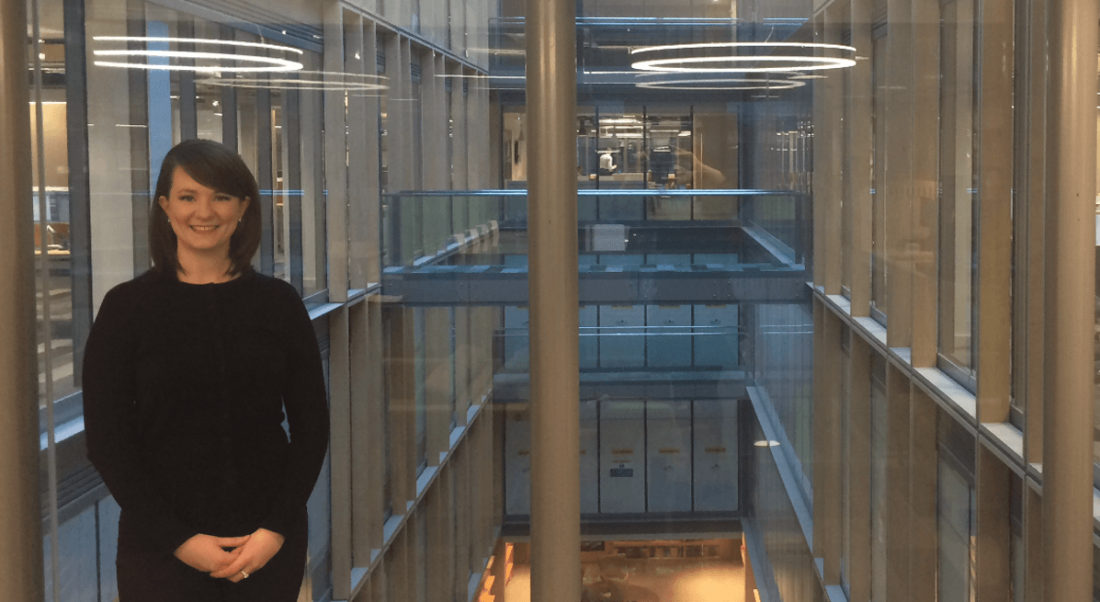In tech, there are myriad career paths beyond data scientist and engineer. But how much do we know about any of them?
Here, Fidelity International’s Gemma O’Brien offers us a glimpse of what it’s like to be a technology change manager at a global financial services organisation.
What is your role within Fidelity International?
I’m a technology change manager within the Technology Infrastructure Services team, based in our new Dublin city centre office. I manage all changes to the IT environment to ensure that only fully authorised changes are implemented.
If there is such a thing, can you describe a typical day in the job?
Thankfully, I have yet to experience a typical day within the role – each day is very different, which keeps the role exciting!
My one constant pivots around our daily Change Advisory Board meeting, where we review changes due for implementation over the following days.
The rest of the day is spent dealing with queries from our global teams, monitoring and governing the technology change management process to ensure we meet the expectations of our clients, while juggling the various projects I work on.
What types of project do you work on?
One of the Fidelity International core values is continual service improvement. We are consistently striving to operate in the best and most efficient way so we can deliver the best outcome for our customers. A number of the projects I am involved in revolve around lean process and efficiency improvements, with a focus on increasing value add activities, such as automation of our daily reporting activities.
Another exciting project involves the transition to cloud offerings, and how management of our controls within change management may be maintained while supporting the company’s move to an agile deployment strategy. We are committed to innovation and delivering better experiences to our customers.
What skills do you use on a daily basis?
My day-to-day job requires interacting with many different stakeholders and teams, so interpersonal and clear communication skills are essential in ensuring everyone is kept up to speed.
The ability to problem-solve and multitask is crucial, as is attention to detail. Analytical skills are also important to extract meaningful information from data for reporting purposes and identifying potential issues.
What is the hardest part of your working day?
The changes we consider on a weekly basis can vary wildly, taking in minor software coding changes, full application roll-outs, and vast infrastructure upgrades and decommissions. Being prepared for the sheer scope of the changes we discuss can be a little daunting at first, but the positive, can-do culture in Fidelity International makes this easier to overcome.
Do you have any productivity tips that help you through the working day?
Organisation is key.
I begin each and every day planning the day’s tasks and meetings. This gives me a clear picture of what my priorities for that day are, and I arrange my day accordingly.
I’m a big believer in lists. There is something very satisfying about crossing something off your to-do list – at least there is for me, anyway.
Productivity tools such as Doodle, Noisli and OneNote are my go-to applications for increasing my productivity within the office and at home. Doodle helps to arrange collectively suitable meeting times through polling, Noisli helps me to focus on a specific task and drone out background noise in the office, while OneNote is a handy Microsoft product that I use for tracking my to-do list or notes from meetings.
Collaboration tools and spaces within the office are also a great resource when problem solving. As the old adage goes, ‘Two heads are better than one’. Sometimes walking through the issue on a whiteboard with someone else can help to see another solution.
When you first started this job, what were you most surprised to learn was important in the role?
Usually when you start a new role, you are sitting within a specific part of the organisation, and exposed only to the day-to-day activities within that particular area.
However, in a role like technology change management, you are in a position where you have visibility of change across the entire organisation. An understanding of the entire company’s organisational structure and the underlying IT infrastructure is critical when reviewing and approving technology changes.
This can be quite an overwhelming prospect, especially in a company as large as Fidelity International, but it is a great opportunity and makes the role challenging.
How has this role changed as this sector has grown and evolved?
The financial services industry is perpetually changing. With the introduction of new business models and the digital agenda, technology is under increased pressure to meet these demands.
Cloud and automation are just some of the hot topics we face within service management right now. How to respond to these new opportunities, while ensuring IT controls are maintained, is a challenge I believe most financial organisations are beginning to face.
The way in which we interact and collaborate with key stakeholders within Fidelity International will determine our success in the face of such challenges. It’s a very exciting time to be in service management!
What do you enjoy most about the job?
The people! My colleagues, at all levels, are very friendly and supportive, which is important when faced with the challenges of an ever-changing role.
There’s also a big focus on work-life balance at Fidelity International, with plenty of opportunities to get involved in social activities outside of the working day, like yoga, book clubs and running groups. I’m a member of the sports and social committee. It’s a great opportunity to meet and get to know people in all levels of the organisation, while also having great fun.
Looking for jobs in tech or science? Check out our Employer Profiles for information on companies hiring right now and sign up for our Career Republic e-zine for a weekly digest of sci-tech careers news and advice.




